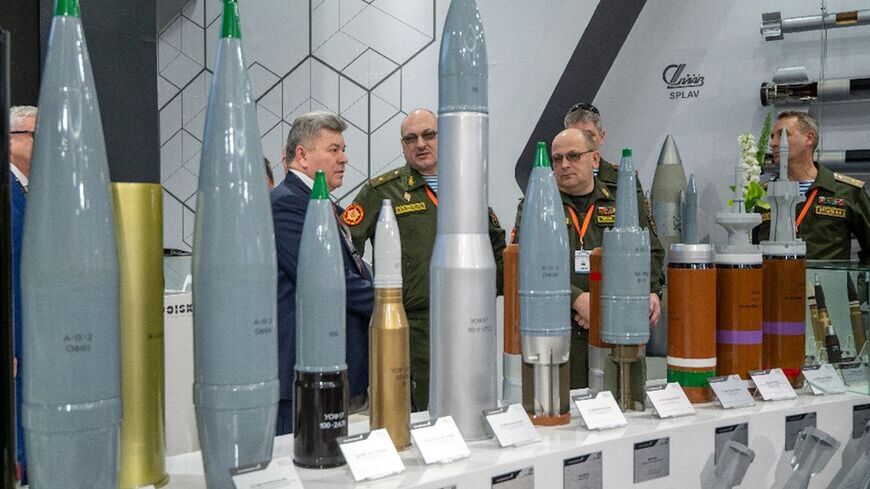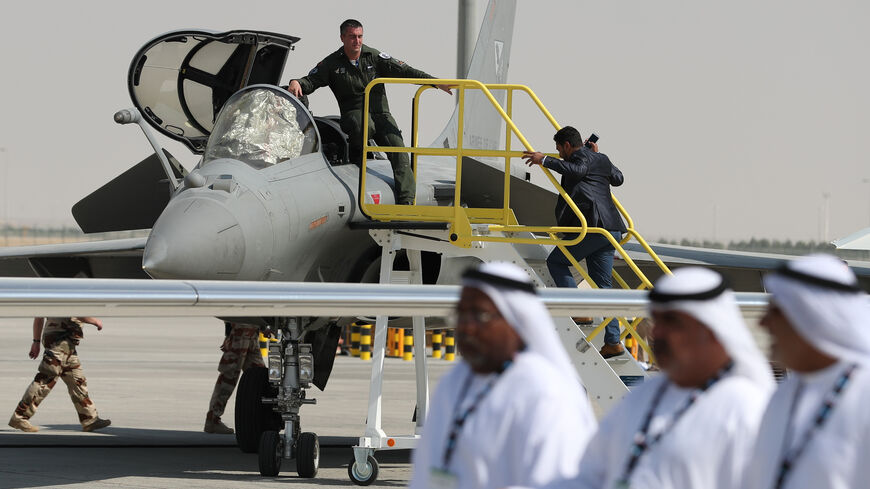UAE spends billions on home-grown arms at defence fair

The United Arab Emirates splashed out billions on arms from home-grown firms at a defence fair in Abu Dhabi this week, underlining a shift away from Western suppliers.
By the end of the five-day show on Friday, the Gulf state had signed more than 50 deals worth $6.3 billion, the official WAM news agency said.
They include at least $5.9 billion signed with local firms at the International Defence Exhibition (IDEX) and the Naval Defence and Maritime Security Exhibition (NAVDEX).
It highlights the UAE's strong support for domestic firms including EDGE, a consortium that was set up in 2019. The oil-rich monarchy also focused on local companies when it spent $5.7 billion at the biennial arms show's previous edition in 2021.
The UAE has reduced arms imports by more than 40 percent over the past decade, taking it from the third to the ninth largest importer globally, according to the Stockholm International Peace Research Institute.
The UAE was the second largest recipient of US arms between 2012 and 2016 but dropped to eighth place between 2017 and 2021, SIPRI said.
During this period, with Sandhurst-trained air force pilot Sheikh Mohamed bin Zayed Al-Nahyan holding the reins of power since 2014, the US ally dubbed "Little Sparta" has fought in Yemen, trained troops in Somalia and backed forces in Egypt and Libya.
- 'Strengthen self-sufficiency' -
The latest deals signal the UAE's "growing emphasis on local programmes rather than foreign ones", said Jean-Loup Samaan, a senior research fellow at the National University of Singapore's Middle East Institute.
"The UAE sees its defence industry as an instrument to strengthen self-sufficiency," Samaan said, explaining it wants to "decrease its reliance on Western security partners" and diversify its economy away from oil.
The UAE is now the 18th largest global arms exporter and the third top supplier in the Middle East behind Israel and Turkey, according SIPRI.
In 2019, EDGE became the first Arab company to enter SIPRI's list of the top 25 largest arms-producing and military services companies.
However, the UAE remains reliant on outside companies for much of its military hardware. In December 2021, it spent about 17 billion euros ($18 billion) on 80 Rafale fighter jets from France.
Georges Berghezan, of the Brussels-based GRIP research centre, said the nascent UAE arms industry also depends on overseas suppliers for parts and components, as well as foreign personnel.
"Although the Emirates are already the main arms exporter in the Arab world, it would be unrealistic to imagine that they could compete with the main arms exporters, at least in the forseeable future," Berghezan told AFP.
EDGE also signed deals with foreign partners this week, including a $1 billion-plus contract with Angola to build a fleet of 71-metre corvette warships.
The consortium also inked a partnership licensing agreement to develop small arms for the Indian market.
EDGE "represents the objective of Abu Dhabi to create one leading actor in terms of the development of local military capabilities", Samaan said.
"It aims to become a regional actor of the arms market."










